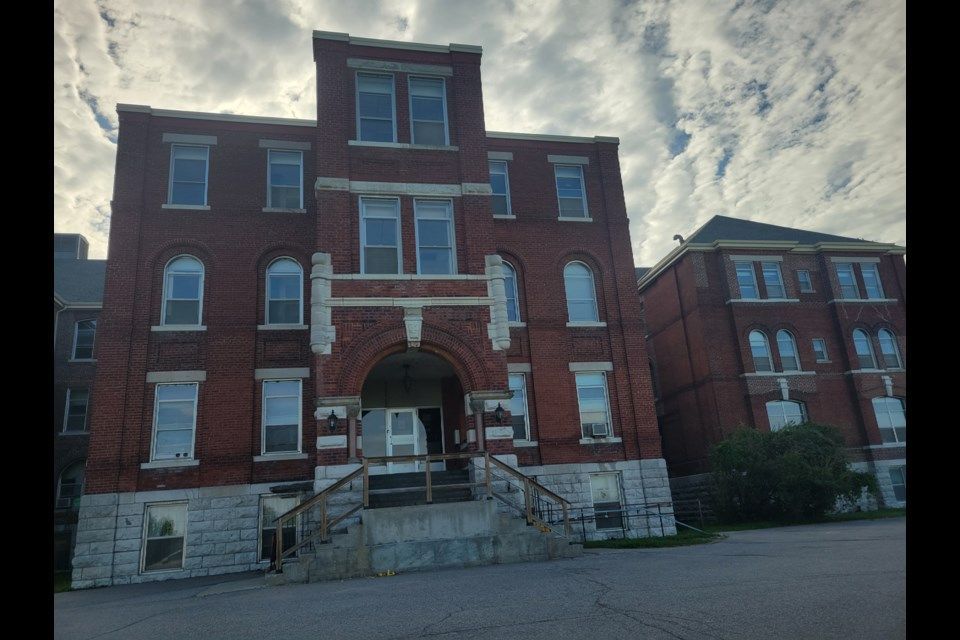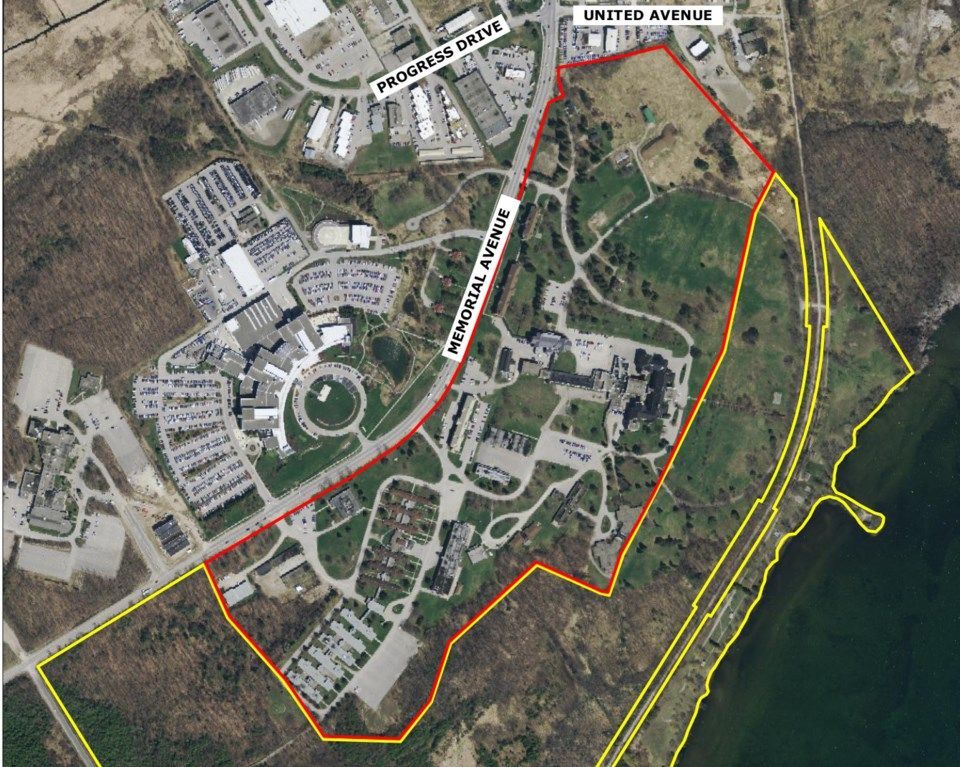Province approves demolition of HRC buildings, OKs new OPP Academy

'Survivors and allies in Remember Every Name are overjoyed about this long-hoped-for announcement,' says advocate who is pushing for a museum on the property.
Sixteen years after the controversial Huronia Regional Centre (HRC) was shut down, the province has finally decided on the fate of the 175-acre property.
OrilliaMatters has learned Kinga Surma, the province’s minister of infrastructure, has given initial approval to demolish, in phases, up to 49 buildings and 11 tunnels on the sprawling former HRC property that lies between Memorial Avenue and Lake Simcoe.
“The existing assets and buildings on the HRC site, constructed in the 1800s, have significantly deteriorated and are no longer viable for long-term use,” Surma says in a letter to the group, Remember Every Name.
Parts of the property are currently used by the Ontario Provincial Police (OPP) and other government tenants, Surma notes.
“(The Ministry of Infrastructure), in partnership with the Ministry of the Solicitor General and the OPP, (is) working to advance demolition activities to support future redevelopment of the former HRC campus for continued government use,” notes the letter.
In a separate letter to the group, OPP Commissioner Thomas Carrique said this year’s provincial budget included a “commitment to modernize police training facilities to meet the public safety needs of our growing communities by training more police officers.”
He notes the plan was “identified as a public safety priority and addressed the aging infrastructure of the OPP Academy” on the site.
Carrique says “planning work is underway for construction of a new OPP Academy in Orillia, which is expected to include developments on the former HRC campus.”
He says the “redevelopment of the site presents a significant opportunity for the OPP to equip new recruits, existing police personnel and Indigenous police partners with the skills needed to respond to the increasing complexity of policing and address urgent specialized training demands.”

He said the OPP is committed to ensuring “the history of the former HRC is preserved, recognized and respected.”
Carrique said he is looking forward to “open and ongoing dialogue” with all stakeholders of these “historical lands.”
In the letter, he invites Marilyn and Jim Dolmage and Debbie Vernon — the key people behind Remember Every Name — to set up a meeting with Supt. Gary Maracle, commander of the OPP’s Indigenous Policing Bureau.
“Survivors and allies in Remember Every Name are overjoyed about this long-hoped-for announcement,” Dolmage said in an email to OrilliaMatters.
Vernon echoed those sentiments.
“Every survivor that we’ve spoken to so far, they are ecstatic about the news," Vernon said, adding some are in “disbelief” after asking for this for “so many years.”
But it’s more than just a demolition, they noted.
“It includes an invitation for us to work with the government and to meet with the OPP,” Dolmage said, noting this is in response to “our insistence that recommendations made by survivors to a 2017 Infrastructure Ontario consultation be followed, especially the construction of a collaboratively planned and respectfully curated museum on site.”
She said the group is looking forward to meeting with the OPP.
Vernon said that meeting is scheduled for mid-July. She hopes discussions will begin at that time about a museum for the property.
“That was part of our recommendations back in 2017 with the government consultation. It should be a peaceful place for reflection and education. We’re not asking for a memorial that is just a slab of concrete or a plaque,” Vernon told OrilliaMatters on Wednesday.
“We’re asking for a memorial museum where, collaboratively, we work with all the groups we have been in contact with ... We also want academia involved.
“We’re hoping we can work together to build a memorial museum that would be part of the site plan agreement and we’re hoping we will get some help from the Ontario government to build it. We have to learn from our mistakes from the past.”
Dolmage agreed.
“It’s interesting that arrangements will be made with the OPP’s Indigenous Policing Bureau. We have always hoped for some parallel Truth and Reconciliation process,” said Dolmage.
Dolmage has fought to right the wrongs that occurred at the HRC for decades. She was a litigation guardian for a former HRC resident in a class-action lawsuit against the province.
In the end, the case was settled for $35 million. And for years of physical, sexual and emotional abuse, the maximum former residents could receive was $42,000.
Perhaps more important than the money was a public recognition of the facility’s ugly past.
Those who called the HRC home between 1945 and 2009 received a lengthy apology from then-premier Kathleen Wynne two weeks before Christmas in 2013 for the neglect and abuse they suffered living in the Orillia facility.
With former residents in the gallery of the provincial legislature, she acknowledged some had been forcibly restrained, left in seclusion, exploited for their labour and crowded into unsanitary dormitories.
The following year, a commemorative plaque was installed on site to honour the memory of the centre’s residents. A cemetery registry was also created.
In 2019, the Remember Every Name sculpture was unveiled on the cemetery grounds directly across from the HRC site.
In recent years, several ideas were floated for the lakeside property, including a grassroots movement to create an arts and culture campus.
Simcoe North MPP Jill Dunlop also floated the idea of building long-term care facilities on the property — an idea that rankled survivors.
Following that becoming public, survivors wrote an open letter to Dunlop that was published in OrilliaMatters.
Harold Dougall, one of the former residents of the HRC, echoed the sentiments of many of his fellow survivors.
“I want the place torn down,” said Dougall, who has run for a seat on Orillia’s city council.
“Every time I go by there, it gives me cold chills. The government is going behind our backs and we are not involved with discussions about the future use. It makes me mad to hear they want to use it as a nursing home.”
The HRC opened in 1876 and operated as a facility for developmentally delayed adults until 2009. At its peak, more than 3,000 people lived on the site.
- Written by Dave Dawson, June 26th, 2025, orilliamatters.com
